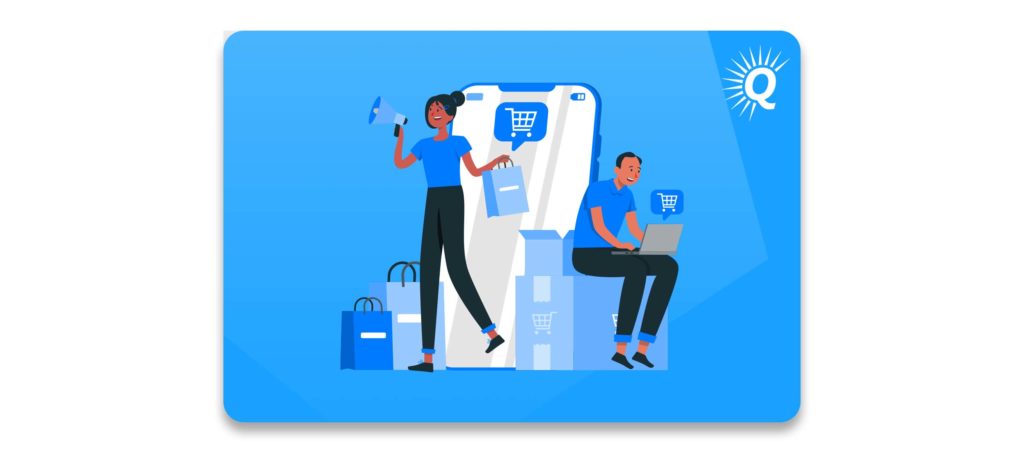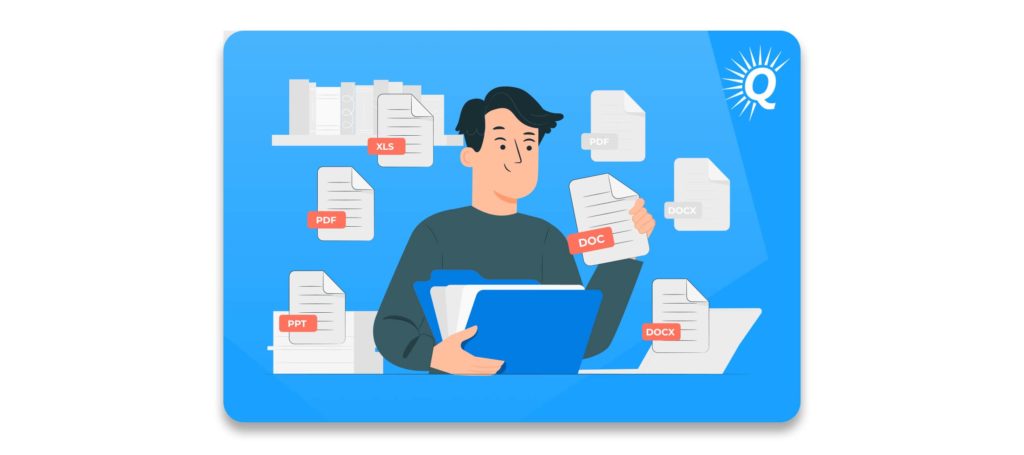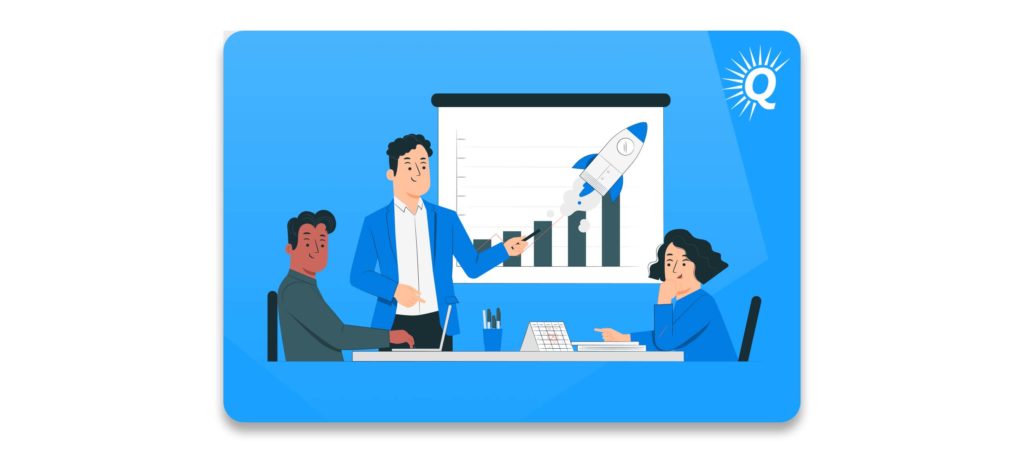Topics:
Never Miss a Beat - Get Updates Direct to Your Inbox
FILTER:


Four Key Questions to Ask When Selling Your Business
By Quiet Light
As a business owner, up to 50 percent of the financial value you derive from your company will come when you sell it. In order for the selling process to be a success, however, it’s best to implement an effective exit strategy long before you decide to sell. To do so, there are four key questions to ask when selling your business.
These questions are:
- How much is your business worth?
- How can your business be improved prior to selling?
- What steps should you take to prepare your business before finding a buyer?
- Who should you work with to accomplish your exit goals?


How Much Is Your Business Worth?
Before listing your business for sale, it is necessary to first get an accurate understanding of what it is worth. But how do you know what your business is worth? Valuation is one of the key questions to ask when selling your business that every seller wants to understand.
There are many different ways of calculating the value of your business, including the book value, the times-revenue method, and the discounted cash-flow method.
However, many people in the industry prefer to use the SDE multiple method instead.
The SDE multiple method for calculating business value
The SDE multiple method takes the seller’s discretionary earnings (more on this below) and multiplies it by a number called the multiple. The resulting number is the estimated value of the business.
In simpler terms: Business value = SDE x multiple
Let’s take a closer look at both the SDE and the multiple.
SDE
The seller’s discretionary earnings is the total income that a business generates plus the discretionary expenses that the business incurs. It is similar to overall income or net profit, but it differs in some important ways.
Essentially, SDE is a figure that aims to capture the true money-generating capacity of a business. For example, let’s say you own a content site that generates $200,000 after all nondiscretionary (required) expenses are taken into account. In addition, you spend another $20,000 on travel throughout the year, expensed to the business.
In this case, your income would then be $180,000 for the business. A new owner could easily avoid the $20,000 in travel expenses if they wished to, however, which would bring the income back up to $200,000. As you can see, adding back discretionary expenses to arrive at SDE does a better job of capturing the owner’s true benefit.


Thinking of Selling Your Business?
Get a free, individually-tailored valuation and business-readiness assessment. Sell when you're ready. Not a minute before.
Common discretionary expenses include but are not limited to:
- Owner’s salary
- Charitable donations
- Federal and state taxes
- Amortization
- Interest
Work with a qualified Advisor when valuing your business in order to ensure that you arrive at the correct SDE figure. If you miss add-backs you are essentially leaving easy money on the table. At the same time, you will need to be able to explain and rationalize all of your add-backs to the buyer when they go over their due-diligence checklist during the transaction.
“Essentially, SDE is a figure that aims to capture the true money-generating capacity of a business.”
Understanding the multiple
Once you calculate the SDE, it is time to determine the multiple. The multiple is a number that captures the overall value of the business. A more attractive business will receive a higher multiple, and vice versa.
The multiple will be based largely on how your business stacks up on the Four Pillars of Value. If your company shows strong growth, has minimal risk, and is easily transferable, and you can provide clear documentation, it will receive a higher multiple. As you can see, minding the Four Pillars of Value before you decide to sell pays dividends.


How Can Your Business Be Improved Prior to Selling?
The best time to start the succession planning process is long before you plan on listing your business. In fact, it is helpful to keep your exit strategy in mind from the very beginning of the life of your business.
Wherever you are in the process, however, right now is the best time to consider how you can optimize your business prior to selling in order to improve your prospects.
“The best time to start the succession planning process is long before you plan on listing your business.”
Maximize your listing price by optimizing the Four Pillars of Value
Improving your business comes down to optimizing the core areas of your business operations in order to create a profitable and well-run organization. By doing so, you will drive up the value of your business and make it a more attractive option for prospective buyers. In addition, it will serve to identify and eliminate any potential deal-breakers that a qualified buyer might uncover.
When optimizing your business, it is helpful to focus on several key components. These components are often called the Four Pillars of Value. These include:
- Growth
- Risk
- Transferability
- Documentation
Taken together, these four factors are crucial when it comes to growing business value.


Growth
Any serious buyer will be looking to purchase a business that they can expect to grow after they take over ownership. Certain exceptions to this do occasionally occur, such as when you receive an offer from a strategic buyer. However, in order to attract the right buyers, it is important to be able to show steady historical growth for your company.
Given this, work to create growth in your business prior to putting it on the market. This may take some time if your business is not currently growing, but it will help you sell at a significantly higher price than you would otherwise.
“Any serious buyer will be looking to purchase a business that they can expect to grow after they take over ownership.”
Risk
All other things being equal, buyers prefer to purchase a company that has minimal risk. Before listing your business, it is important to identify all areas of risk in your business operations and work to find solutions to mitigate those risks.


In general terms, risk occurs when success relies on a single point of failure. For example, let’s say all of your sales and revenue are generated from Facebook advertising. Your business would take a major hit if your Facebook ads stopped performing well. Therefore, one of the key questions to ask when selling your business is whether or not it’s exposed to single points of failure.
In order to address this single point of failure, you could develop other marketing channels such as content marketing, affiliate marketing, and email marketing. This would serve to diversify your customer acquisition channels while at the same time likely drive growth.
Buy a Profitable Online Business
Outsmart the startup game and check out our listings. You can request a summary on any business without any further obligation.
Transferability
Your business is only valuable to a new owner if they can easily and successfully take over operations without having the transfer negatively impact sales and revenue. The relative ease or difficulty with which your business can be transferred will affect the ultimate value of your business. Therefore, another of the key questions to ask when selling your business relates to its transferability.
There are several factors that could impact the transferability of your business. For starters, you can create standard operating procedures and clear instructions for how your business is run in order to make it easier for anyone to run it successfully. Furthermore, you could build out a team to run your business for you. This increased automation would make it much easier for a new owner to take over your business operations.
Another way that transferability can be impacted is if your business features your personality, likeness, or image too heavily. If you have a content website titled Robert’s Car Reviews, a new owner will likely find it hard to fill your shoes without seeing a decline in performance.


As such, work to create a business that does not feature your image or personality so heavily. This can be done gradually over time in preparation for a sale.
“Your business is only valuable to a new owner if they can easily and successfully take over operations without having the transfer negatively impact sales and revenue.”
Documentation
Lastly, a business that has clear and orderly documentation of its operating procedures and financial statements will be much more attractive to prospective buyers. For starters, it makes the due-diligence process much easier for a buyer. Documentation also helps a new owner take over operations successfully from the current owner, as we just discussed.
In addition, clear documentation helps to instill a sense of trust. When they see clear documentation, a prospective buyer will have confidence that you run your business in an organized and responsible manner. This will help to attract more interested buyers and ultimately drive up the value of your business.


What Steps Should You Take To Prepare Your Business Before Finding a Buyer?
Sometimes, a potential buyer will find you unexpectedly, such as when a competitor makes an offer to buy out your business. However, this is most often not the case. If you are considering selling your business, there are several questions to ask when selling your business crucial things you need to do before you actually find an interested buyer.
Optimize your business
First and foremost, you should take the time to optimize your business. Whether you are selling an ecommerce business, a content site, or any other type of online business, you will earn a larger payout if you take the time to optimize your business before trying to find a buyer. For example, you may be able to optimize your supply chain, ad campaigns, or operations.
As we discussed before, use the Four Pillars of Value as a guideline to go through your entire business in order to identify ways to optimize it. Then, create an optimization plan and timetable for how you are going to carry out your improvements. Lastly, execute your plan.
“Whether you are selling an ecommerce business, a content site, or any other type of online business, you will earn a larger payout if you take the time to optimize your business before trying to find a buyer.”
Get a valuation
Once your business is ready to be sold, you must get an accurate business valuation. Many entrepreneurs find it helpful to work with an experienced business Advisor during this process. By doing so, you will help to ensure that you list it for the full price that it is worth, without under- or overestimating its value and setting yourself up for failure. They’ll also help you identify all of the key questions to ask when selling your business to help ensure you’re considering all possible scenarios.


Create your marketing package
Next, it is important to create a marketing package for your business. The marketing package contains all of the relevant information about your business, its performance, and your asking price.
The marketing package is what potential buyers will use to evaluate your business to see if they are interested in making an offer. All information in your marketing package should represent your business in a truthful manner while at the same time highlighting its strong points.
List your business for sale
Lastly, it is time to list your business for sale. This is where all of your hard work and preparation pays off, and you get to present your business to potential buyers.
The right business Advisor can help show your business listing to their network of potential buyers. This will help your business reach an even wider audience than it would otherwise.
“Having a business Advisor work with you throughout the selling process can help you achieve a less stressful and more profitable exit, setting you up for future success in your next venture.”
Whom Should You Hire to Help You Accomplish Your Selling Goals?
Some entrepreneurs decide to skip looking for help and sell on their own. While this can be a good call for some individuals, most business owners find that having help allows them to ask the right questions, maximize their sale price, streamline the sales process, and find the right buyer.


However, with so many business consultants clamoring for attention, it can feel challenging to find the right one.
Whether you are going for an Amazon FBA business sale or looking to sell your SaaS company, the right business Advisor will help you:
- Optimize your business
- Maximize your listing price
- Develop an accurate valuation
- Create your marketing package
- Negotiate successfully
- Close the deal
Each step along the way brings with it its own unique challenges and questions to ask when selling your business. Having a business Advisor work with you throughout the selling process can help you achieve a less stressful and more profitable exit, setting you up for future success in your next venture.
Thinking of Selling Your Business?
Get a free, individually-tailored valuation and business-readiness assessment. Sell when you're ready. Not a minute before.





